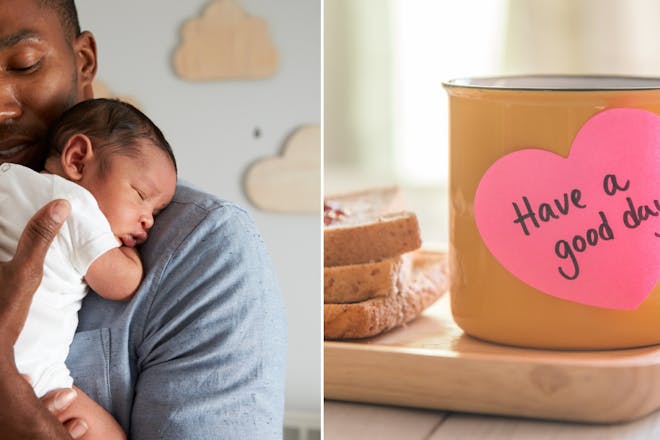Foods to avoid in pregnancy: your definitive guide
This page contains affiliate links, which means we may earn a small amount of money if a reader clicks through and makes a purchase. All our articles and reviews are written independently by the Netmums editorial team.
Foods to avoid in pregnancy: your definitive guide
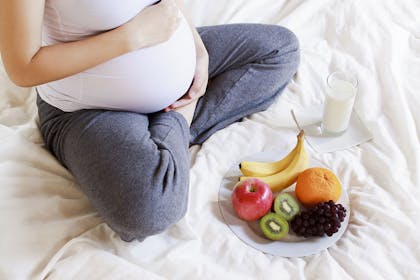
Raw or undercooked meat
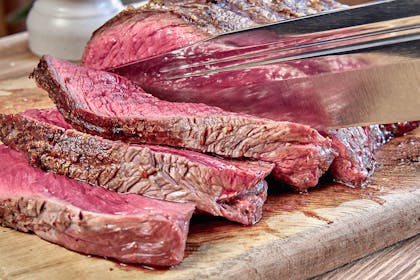
Make sure you eat well-cooked meat during pregnancy with no trace of pink or blood. You should be especially careful with poultry, pork, sausages and burgers, and be mindful when barbecuing.
If you eat raw or undercooked meat there's a small risk of getting toxoplasmosis. Toxoplasmosis is an infection caused by a parasite that lives in raw meat, soil and cat poo, and can cause miscarriage and complications in pregnancy.
Liver
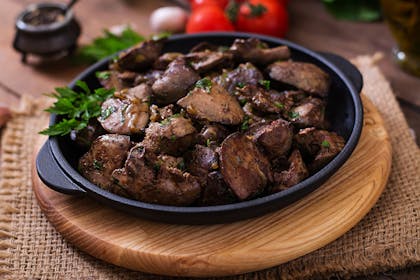
Liver and liver products such as pâté and liver sausage, contain a high amount of vitamin A. Too much vitamin A can be harmful to your unborn baby so liver should be avoided.
FREE NEWBORN NAPPIES
Pâté – including vegetarian pâté

All types of pâté, including vegetable pâté, may contain the bacteria listeria. Listeria can cause an infection called listeriosis. There's a small chance that listeriosis can cause miscarriage or stillbirth or cause severe illness in newborns.
Game meat
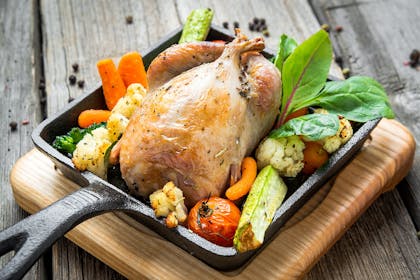
Game such as partridge, pheasant and goose may contain lead shot, which can be harmful to your unborn baby.
Larger game sold in supermarkets, like venison, is usually ok as it's often farmed and contains very low levels of lead or none at all.
Cold cured meats
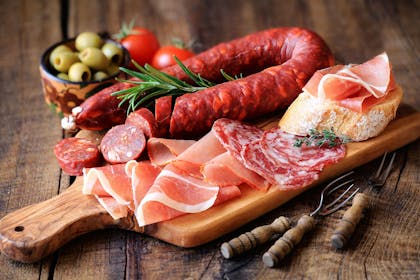
While the risk is low in cured meats like chorizo, pepperoni, salami and prosciutto, many pregnant women chose to avoid them unless they're cooked thoroughly.

This is because cured meats are raw so may contain the parasite that causes toxoplasmosis, an infection which can cause miscarriage.
Cooking kills off the bacteria though, so it's fine to have cooked cured meats, such as pepperoni on pizza or chorizo in a stew.
Swordfish, shark and marlin
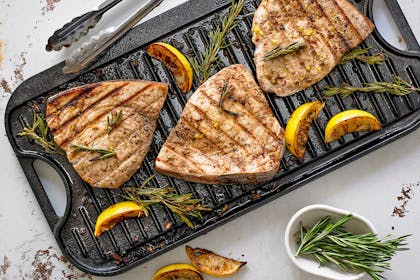
Avoid swordfish, shark and marlin as they all have high levels of mercury. Mercury could affect your unborn baby's developing nervous system.
Tuna
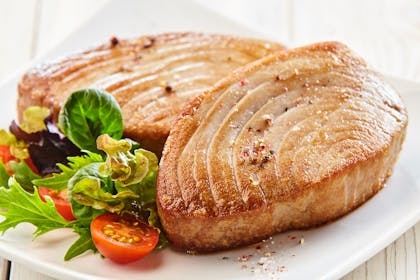
You can still eat tuna during pregnancy, but because it contains mercury you should limit the amount you have.
Eat no more than two tuna steaks or four medium cans of tinned tuna a week.
Raw fish
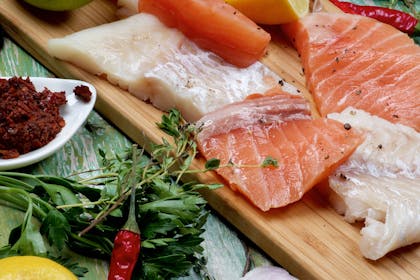
Avoid raw fish unless it's been frozen first.
Shops and restaurants in the UK are required to freeze all raw fish before they make dishes like sushi, so most should be fine to eat. If you're making your own sushi, make sure you freeze the raw fish for at least four days first.
Raw fish can contain small parasitic worms which can cause a condition known as anisakidosis. This can be very painful and involves vomiting, severe abdominal pain and diarrhoea.
Raw shellfish
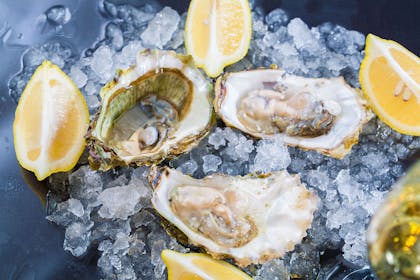
While it's safe to eat cooked shellfish when you're pregnant, you should avoid all raw shellfish, like oysters.
If you're eating prawns, mussels, clams, scallops, crab or any other form of shellfish, make sure you cook them well first. Raw or undercooked shellfish can cause food poisoning, which can be particularly unpleasant when you're pregnant.
Oily fish
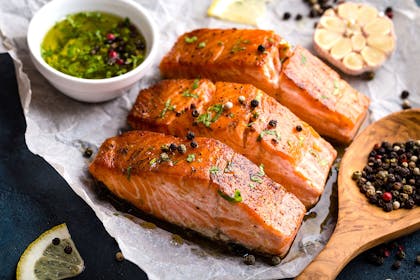
It's OK to eat oily fish such as mackerel, salmon, sardines, trout and herring during pregnancy, but it's recommended you have no more than two portions a week.
Oily fish can contain pollutants and if you eat too many, they may harm your baby.
Unpasteurised milk or dairy products
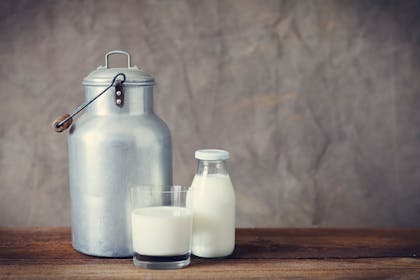
The milk you find in shops, supermarkets, coffee shops and restaurants is pasteurised and safe to drink during pregnancy. If you visit a farm shop or farmers' market, though, you might find unpasteurised cow's, goat's and sheep's milk, or cheese and other dairy products made from it.
Sometimes called raw milk, unpasteurised milk may contain listeria, which can can cause listeriosis and harm your baby.
Mould-ripened soft cheese
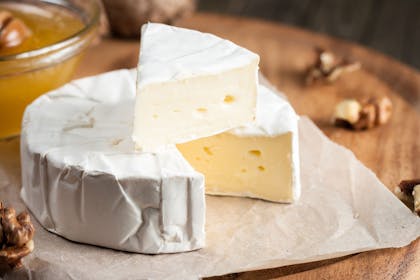
Soft cheeses that have a white coating on the outside, such as camembert, brie and some goat's cheese, should be avoided when you're pregnant, unless they're cooked until they're steaming hot.
This is because they have more moisture than hard cheeses, making it easier for bacteria like listeria to grow.
Soft blue cheeses

Soft blue cheeses like Danish blue, Gorgonzola and Roquefort should be avoided when you're pregnant as they may contain listeria. They're ok to eat if they're cooked until they're steaming hot.
And the great news is that hard blue cheeses such as Stilton are safe to eat.
Raw or partially cooked eggs (unless they're British Lion eggs)
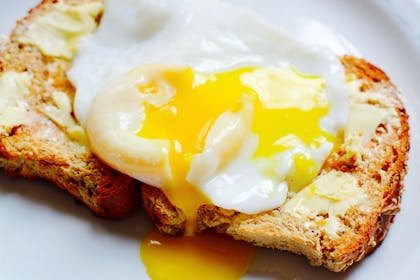
When you're pregnant, look for eggs stamped with the British Lion mark. British Lion eggs comply with certain safety standards, which mean they're low risk for salmonella. They're also safe to eat partially cooked or raw in recipes like mayonnaise and mousse when you're pregnant.
If your eggs don't have the British Lion mark, make sure the whites and yolks are fully cooked before eating as there's a risk of salmonella food poisoning. While salmonella is unlikely to harm your unborn baby, it can make you very unwell.
Raw or partially cooked duck, goose or quail eggs
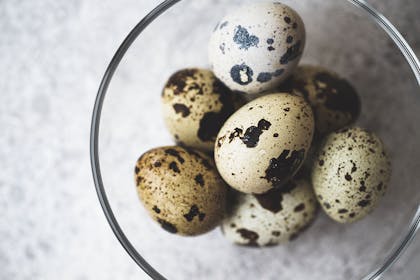
If you're eating duck, goose or quail eggs during pregnancy, make sure they're cooked till the white and yolk are solid because of the risk of salmonella food poisoning.
Caffeine

While you can drink caffeine during pregnancy, you should limit the amount to 200mg a day.
A cup of instant coffee has around 100mg of caffeine
A cup of tea (including green tea) has around 75mg of caffeine
A can of energy drink has around 80mg of caffeine
A can of cola has around 40mg of caffeine
A bar of chocolate has around 10-25mg of caffeine
Higher levels of caffeine can lead to low birthweight and have also been linked to miscarriage.
Alcohol

The Chief Medical Officers for the UK recommend cutting out alcohol completely during pregnancy. This is because experts are unsure how much alcohol, if any, is safe to drink.
Alcohol can increase the chance of miscarriage, low birthweight and premature birth. Drinking when pregnant can also lead to behavioural and learning difficulties in your child after birth.
Liquorice root
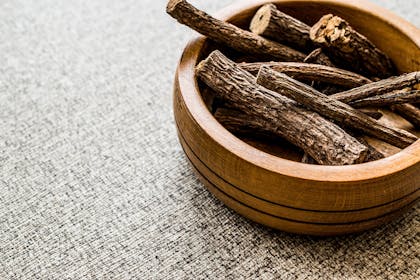
While liquorice is ok to eat, the NHS advises avoiding the herbal remedy liquorice root. While more research is needed, some studies suggest liquorice root could be linked to developmental issues and early onset puberty in children whose mothers consumed it during pregnancy.
Herbal teas
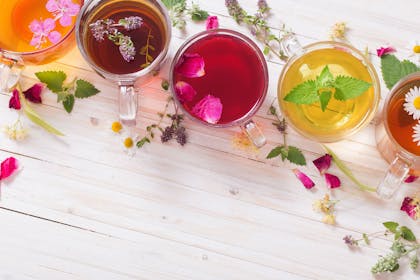
The NHS advises drinking no more than four cups of herbal tea a day while pregnant and varying the types of tea you drink. This is because the herbs used in herbal teas are often the same as those used in herbal remedies, and can have medicinal properties.
While there's not much data around the effects of herbal teas in pregnancy, following this advice will help prevent you consuming too much of any one herb.
Unwashed veg
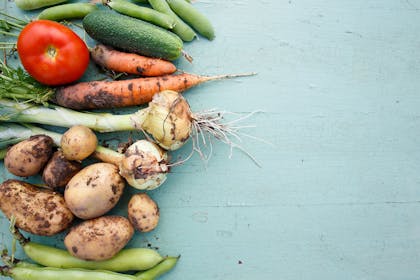
Make sure you wash all your fruit, vegetables and salad thoroughly when you're pregnant. They could have soil on them, which can contain the parasite that causes toxoplasmosis. In rare cases, toxoplasmosis can cause miscarriage and complications during pregnancy.
Mutivitamins or vitamin A
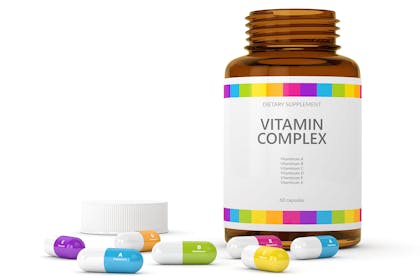
Too much vitamin A can harm your baby so avoid multivitamins or supplements containing it. Vitamin A is also found in cod liver oil and other fish liver oils so these should be avoided during pregnancy, too.
If you'd like to take a multivitamin, choose one designed specifically for pregnancy, or chat to a pharmacist who can help you find the right balance of nutrients for you.
Real Food for Pregnancy: The Science and Wisdom of Optimal Prenatal Nutrition by Lily Nichols is a great guide to what you should and shouldn't eat. See more details at Amazon.
What foods have you been enjoying while pregnant? Share your pregnancy experiences with other mums-to-be in the forum below.
Related stories
Vegetarian and vegan diet during pregnancy: is it safe?
Your complete A-Z of pregnancy food and drink safety
This article contains affiliate links, which means we may earn a small amount of money if a reader clicks through and makes a purchase. All our articles and reviews are written independently by the Netmums editorial team.

